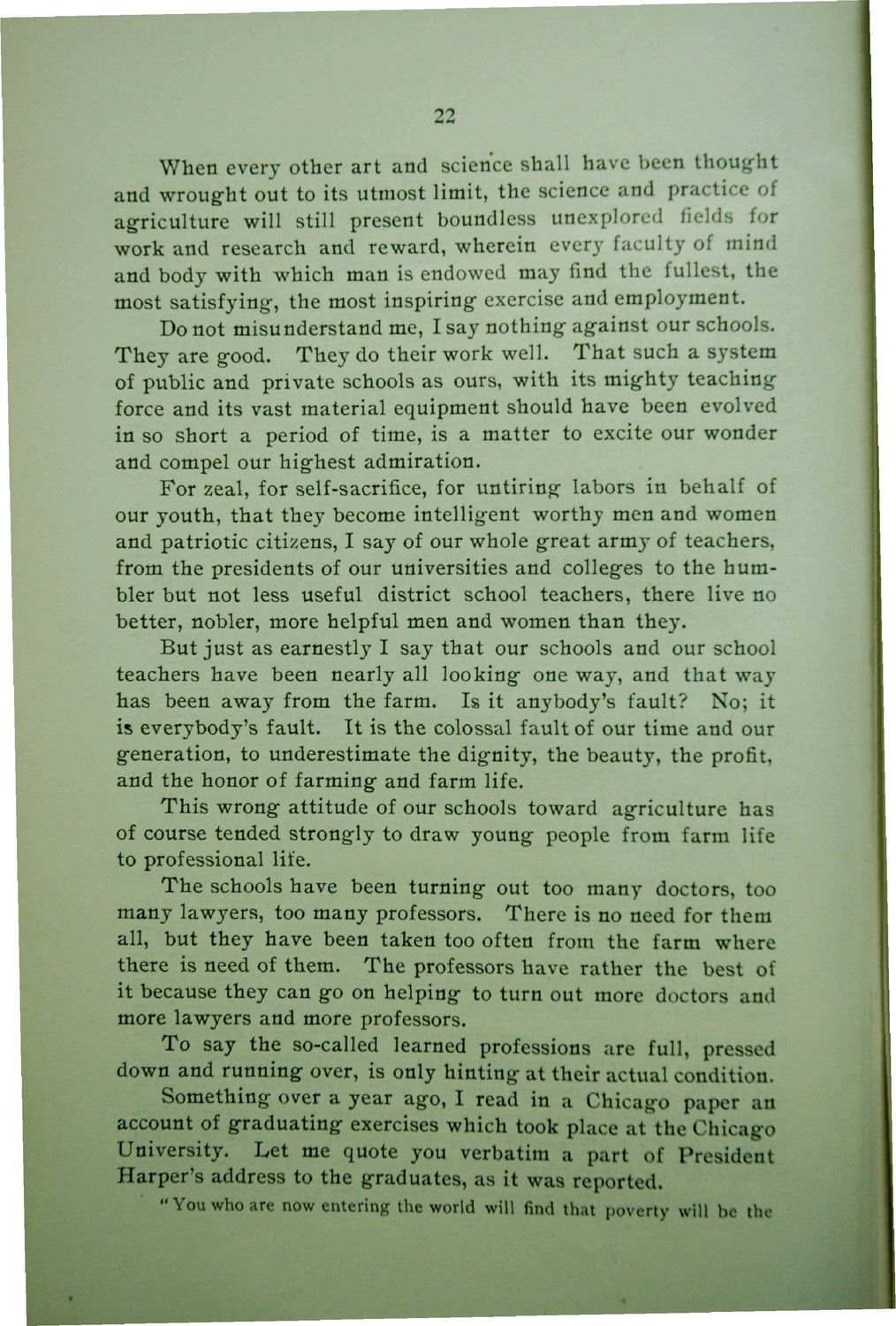| |
| |
Caption: Dedication - Ag Building
This is a reduced-resolution page image for fast online browsing.

EXTRACTED TEXT FROM PAGE:
07 When every other art and science shall have been thought and wrought out to its utmost limit, the science and practice of agriculture will still present boundless unexplored fields for work and research and reward, wherein every faculty of mind and body with which man is endowed may find the fullest, the most satisfying, the most inspiring exercise and employment. Do not misunderstand me, I say nothing against our schools. They are good. They do their work well. T h a t such a system of public and private schools as ours, with its mighty teaching force and its vast material equipment should have been evolved in so short a period of time, is a matter to excite our wonder and compel our highest admiration. For zeal, for self-sacrifice, for untiring labors in behalf of our youth, that they become intelligent worthy men and women and patriotic citizens, I say of our whole great army of teachers, from the presidents of our universities and colleges to the humbler but not less useful district school teachers, there live no better, nobler, more helpful men and women than they. But just as earnestly I say that our schools and our school teachers have been nearly all looking one way, and that way has been away from the farm. Is it anybody's fault? No; it is everybody's fault. It is the colossal fault of our time and our generation, to underestimate the dignity, the beauty, the profit, and the honor of farming and farm life. This wrong attitude of our schools toward agriculture has of course tended strongly to draw young people from farm life to professional life. The schools have been turning out too many doctors, too many lawyers, too many professors. There is no need for them all, but they have been taken too often from the farm where there is need of them. The professors have rather the best of it because they can go on helping to turn out more doctors and more lawyers and more professors. To say the so-called learned professions are full, pressed down and running over, is only hinting at their actual condition. Something over a year ago, I read in a Chicago paper an account of graduating exercises which took place at the Chicago University. Let me quote you verbatim a part of President Harper's address to the graduates, as it was reported. "You who are now entering the world will find that poverty will be the
| |